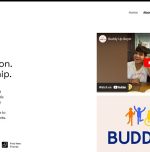Don’t Let Impostor Syndrome Destroy Your Career

Have you ever stopped in your tracks with a feeling of such tremendous self-doubt that your confidence was shot?
These can be the symptoms of impostor syndrome.
It is a concept describing high-achieving individuals who are marked by an inability to internalize their accomplishments and a persistent fear of being exposed as a “fraud”.
It’s also known as “Impostor Phenomenon” or “Fraud Syndrome”.
When opportunity knocks with a new job, promotion or a chance to take a risk, women often feel the impostor syndrome take hold.
Young suggests impostor syndrome gives us an opportunity to drill down and ask if the new opportunity is fear based.
Unable to internalize our successes
Accept that you have had some role in your successes. We were given an opportunity that others weren’t. And so, nothing we achieve after that opportunity was actually deserved. You did something to get where you are.
You said yes when you could have said no or, maybe more challenging, you said no when you could have said yes.
Feeling like I am a fraud
I feel like a fraud when I’m concerned about myself. What will they think of me? If I fail they’ll shun me. I don’t know as much as that other guy, I have no right to say anything on the topic. Blah blah blah.
The fastest way to get over feeling like a fraud is to genuinely try to help someone else. Losing is just part of the game.
Don’t glorify failure, but don’t let it make you feel like you’re not a real contender either.
You’re Thinking “My Question Is So Dumb, I Bet Everyone Else Knows the Answer”
Sometimes it’s as simple as not being able to hear your supervisor during a team meeting, but with Impostor Syndrome, every admission for help seems like another chance for your co-workers to discover that you really don’t know your stuff. It can leave you feeling paralyzed, afraid to speak up.
Flip This to “I’m Qualified to Be Here, So That Means My Question Isn’t Stupid, But Rather a Smart Way for Me to Learn More”.
You might’ve convinced themselves that asking questions will out you as a fraud. From the outside, you can see this is clearly irrational and may actually stunt your professional growth.
First, remind yourself that no one has all the answers and be competitive enough to admit when you don’t know so you can ask for help.
Next, look to foster a support system by seeking out trusted colleagues who you feel comfortable bringing your questions to.
Faking things does work
Sometimes faking it doesn’t make you a fraud. If you smile your body will be more generous with happy chemicals and actually make you happier. Neuroplasticity means that you can shape your brain by pretending.
Find one person you can say, “I feel like a fraud” to. Being able to say that out loud to another person can be a huge help. Especially when they laugh at you for it.
Photo by Nathan Anderson on Unsplash (Free for commercial use)
Image Reference: https://unsplash.com/photos/J3Xjyg5m8kY










Leave a Reply